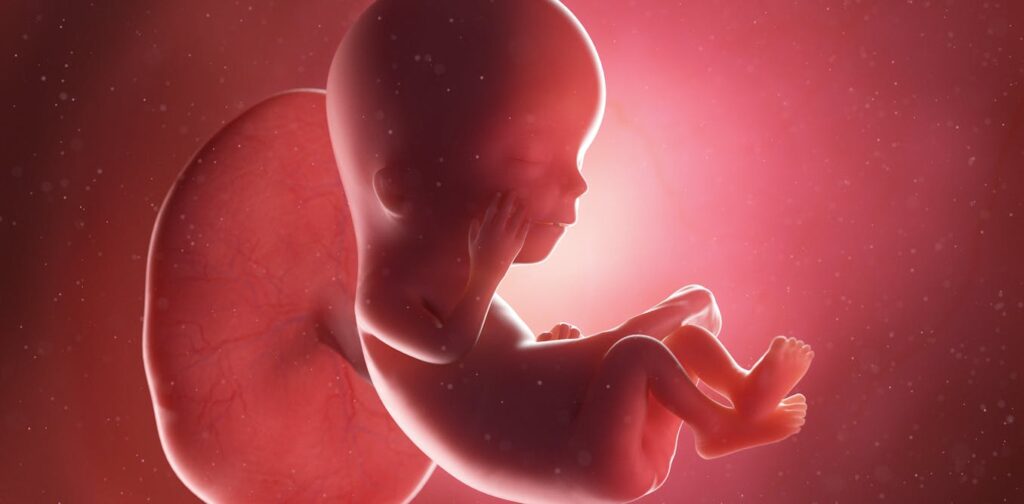Climate change is one of the greatest public health threats humanity has ever faced.
Global warming is also part of this threat: rising temperatures lead to worsening health conditions, especially for vulnerable people such as pregnant women and children.
Scientists have previously found that exposure to heat increases the risk of premature birth and stillbirth, and new research continues to uncover worrying links to poor outcomes for mothers and their babies. Birth defects, high blood pressure during pregnancy, and low birth weight are some of the risks associated with increased heat.
One area that has received little attention is the long-term effects of heat exposure during pregnancy on the baby. To explore this question, we conducted a systematic review of all existing research on the impact of heat exposure during pregnancy on health and socio-economic outcomes later in life.
Systematic reviews are designed to collate and summarise all findings from eligible studies, rather than relying on just one study, to provide the highest level of medical evidence.
Our findings were clear: people exposed to excessive heat before birth suffered alarming effects throughout their lives.
Long-term effects
The most common measure of heat is average temperature, but some studies have used more complex measures that adjust for humidity and other factors that affect how individuals experience heat.
Defining the levels of heat that are dangerous for pregnant women is an ongoing focus of our research and is most likely influenced by location, context and individual vulnerability. Different contexts may also result in different danger thresholds and periods of sensitivity.
They found 29 studies spanning more than 100 years that looked at effects throughout an individual's lifetime. Some studies closely followed pregnancies to observe adverse effects on children. Others relied on population registries that recorded birth dates and places, allowing researchers to estimate an individual's heat exposure in the womb.
More than 60% of the studies were conducted in high-income countries in the Northern Hemisphere, where the climate is often cooler. The studies relied on observing naturally occurring differences in heat exposure rather than controlled trials.
Despite these study limitations, the majority of studies found an association between increased heat exposure during pregnancy and long-term adverse outcomes.
Read more: Climate change will make life harder: South Africa likely to bring heat waves, water stress and gender-based violence
In particular, we found an association between lower academic achievement and lower earnings in later life.
For example, in the United States, each additional day during early pregnancy when temperatures exceeded 32°C was associated with a loss of $56 (in 2008 dollars) in annual earnings at age 30.
Adverse health effects were also found, including increased risk of heart disease, high blood pressure, childhood asthma and pneumonia.
It is estimated that for every 1°C increase in body temperature during pregnancy, the risk of childhood pneumonia increases by 85%.
In Africa, increased exposure to heat during pregnancy was linked to a higher risk of malnutrition in children, while in the United States, studies have found an association with an increased risk of obesity.
Read more: Five questions for African countries that want to build climate-resilient health systems
Many studies have also shown links to mental illness, including an increased risk of eating disorders and schizophrenia. In fact, previous research has shown that the month a baby is born has long been associated with the risk of mental illness. Our study suggests that heat exposure may be one of the reasons why.
These effects appear to culminate in an association with a reduced life expectancy, with people exposed to high temperatures while in the womb found to die at a younger age.
Additionally, studies that looked at vulnerability of subgroups found that the impact on female fetuses was more severe.
Multiple Pathways
Understanding how and why these effects are seen in an entirely different body system was a key part of our research. We drew on a team of experts in human development, ongoing research into the direct effects of heat on pregnant women, and animal studies.
Read more: From deadly allergies to heart attacks and malaria – the devastating health effects of global warming in Africa
The effects of fever during pregnancy on the fetus likely occur through several pathways:
The mother's health deteriorates due to illnesses such as preeclampsia and diabetes
It has a direct effect on the baby's development, especially on the nervous system (heat can cause birth defects)
Increased risk of premature birth and other problems during birth
It directly modifies the fetus's DNA, which can occur through changes in epigenetic signatures, an evolutionary mechanism that allows genes to be switched on and off quickly to adapt to the environment.
One study has also pointed out that telomeres, biological clocks in our DNA that are related to the limit of our lifespan, are shortened in the fetus.
There is an urgent need for further research in this area to investigate how and why these effects occur.
Call to action
Although the study is limited, our findings are alarming and support immediate individual, community and global action to protect pregnant women and their unborn children from heat exposure.
It is our duty to speak up for those who cannot, those who had no role in creating this public health emergency, and those who stand to suffer the worst consequences of our inaction.



